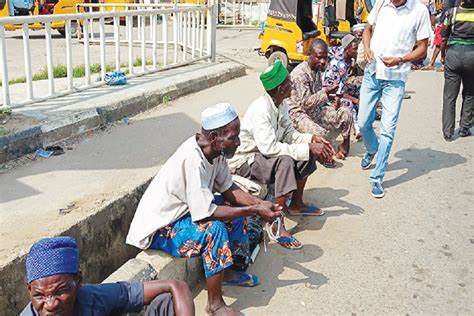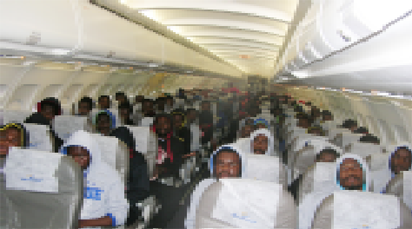
Security forces, seen here on Monday, moved against protesters after a long stand-off. Credit/AFP
Sudan crisis: Official admits 46, not 100 died Tuesday in civil protests
Doctors have said on Wednesday that at least 100 people had been killed in the Sudan capital, Khartoum, amid pro-democracy protests.
But a Sudanese official has denied that at least 100 people were killed by a paramilitary unit saying that the number was at most 46.
They said 40 bodies were pulled from the River Nile in Khartoum on Tuesday.
Authorities had initially stayed quiet, but a health ministry official put the number at 46 early on Thursday.
Sudanese opposition activists have rejected an offer of talks from the country’s military council, saying it cannot be trusted amid a violent crackdown on protesters.
Residents told the BBC they were living in fear in the capital.
The deputy head of the military council defended the violent suppression, claiming that the protesters had been infiltrated by rogue elements and drug dealers.
“We will not allow chaos and we will not go back on our convictions. There is no way back. We must impose the respect of the country by law,” said Mohammed Hamadan – also known as Hemeti – on Wednesday.
Numerous reports from Khartoum said the paramilitary unit, the feared Rapid Support Forces (RSF), was roaming the city’s nearly deserted streets, targeting civilians.
Formerly known as the Janjaweed militia, the RSF gained notoriety for brutal atrocities in the Darfur conflict in western Sudan in 2003.
Reports continue to come in of these militia going into neighbourhoods and killing people. Their leader claims it is impostors behind the violence.
The BBC reports that healthcare givers ae afraid of going to work and that people are still coming to terms with the violence of the last few days.
“At the former sit-in area – there are torn and charred posters as well as burnt-out tents.
The fear is that more of the dead could still be there.
Security forces seem to outnumber civilians on the streets of the capital.
Reports continue to come in of their brutal crackdown.
At Ibrahim Maleek Teaching Hospital – the doctors and nurses have not come to work because they’re afraid of being targeted. Instead, it’s the medical students who are treating patients.
Like 33-year-old Mohanned Mirghani – he says he was shot at close range by the Rapid Support Forces. “They shot me from close range; the RSF were the distance that you are from me now. Two of my friends were also shot but I don’t know what happened to them.”
It’s hard to get a proper sense of what’s happened. One big hindrance is the fact that the military rulers have cut off the internet”




Recent Comments